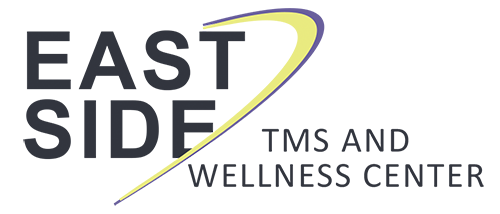I n the ever-evolving spectrum of mental health care, innovative treatment modalities like Transcranial Magnetic Stimulation (TMS) and Ketamine therapy offer hope for individuals grappling with conditions such as depression, anxiety, and mood disorders. While both approaches have demonstrated efficacy in alleviating symptoms, TMS stands out for several distinct advantages over Ketamine therapy. Let’s delve into the benefits of TMS and explore why it may be a preferred option for many patients.
n the ever-evolving spectrum of mental health care, innovative treatment modalities like Transcranial Magnetic Stimulation (TMS) and Ketamine therapy offer hope for individuals grappling with conditions such as depression, anxiety, and mood disorders. While both approaches have demonstrated efficacy in alleviating symptoms, TMS stands out for several distinct advantages over Ketamine therapy. Let’s delve into the benefits of TMS and explore why it may be a preferred option for many patients.
- Non-Invasiveness:
TMS therapy is non-invasive, meaning it does not require surgery, anesthesia, or intravenous administration. Unlike Ketamine, which often involves intravenous infusion or injection, TMS entails simply positioning a magnetic coil over the scalp to deliver targeted stimulation to specific brain regions implicated in mood regulation. This non-invasive nature enhances safety and tolerability, minimizing the risk of procedural complications and adverse reactions commonly associated with invasive interventions. - Precise Targeting:
One of the key advantages of TMS therapy is its ability to precisely target neural circuits involved in mood disorders, such as the dorsolateral prefrontal cortex. By modulating activity in these brain regions, TMS aims to rebalance dysfunctional neural networks and alleviate symptoms of depression and related conditions. In contrast, Ketamine exerts its effects through broader neurochemical mechanisms, potentially lacking the specificity and precision offered by TMS in targeting specific brain circuits. - Minimal Side Effects:
TMS therapy is associated with minimal side effects compared to Ketamine, which can produce adverse reactions such as dissociative experiences, increased blood pressure, and nausea. While TMS may cause mild scalp discomfort or headaches during or after treatment sessions, these effects are generally transient and well-tolerated. Furthermore, TMS does not entail systemic exposure to drugs, reducing the risk of drug interactions or long-term side effects commonly associated with pharmacological interventions. Technicians at Eastside TMS value patient comfort, so there is clear communication with patients throughout treatment of how they can better position the treatment coil for maximum comfort. - Long-Term Benefits:
Research suggests that the benefits of TMS therapy may extend beyond the treatment period itself, with many patients experiencing sustained improvement in symptoms even after completing a course of TMS sessions. This durability of response underscores the potential for long-term remission and symptom management, offering hope for individuals seeking lasting relief from depression and related disorders. In contrast, Ketamine’s effects may be short-lived for some individuals, necessitating repeated administrations to maintain therapeutic benefits. - FDA Approval and Evidence-Based Efficacy:
TMS therapy has received FDA approval for the treatment of major depressive disorder, providing regulatory validation of its safety and efficacy. Numerous clinical trials and meta-analyses have demonstrated the effectiveness of TMS in reducing depressive symptoms, particularly in individuals who have not responded to prior antidepressant medications. This robust evidence base supports the widespread adoption of TMS as a frontline treatment for depression, offering clinicians and patients confidence in its therapeutic value.
In conclusion, Transcranial Magnetic Stimulation (TMS) therapy offers several compelling advantages over Ketamine therapy in the treatment of depression and related mood disorders. Its non-invasiveness, precise targeting, minimal side effects, long-term benefits, and FDA approval position TMS as a preferred option for many patients seeking effective and well-tolerated interventions. Eastside TMS offers flexible payment plans and scheduling to meet different patients needs. While Ketamine therapy remains a valuable treatment modality with its own set of benefits, the distinct advantages of TMS underscore its importance in the evolving landscape of mental health care, offering hope for improved outcomes and quality of life for individuals battling depression and related conditions. To schedule your TMS Consultation, please call 425-919-6826 today.



